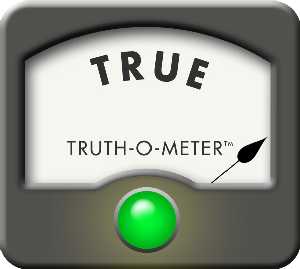Truth is the dispensable commodity in American elections


Writing about politics can be depressing. Almost every utterance by candidates comes from a negative perspective. The Boxer-Fiorina campaign that I cover is a near perfect example. There is little being said about either candidates’ achievements (no surprise, since Boxer is hardly legislator-of-the-year in anyone’s book and Fiorina was distinctly unsuccessful as Hewlett-Packard’s first female CEO). So the topic of all the campaigning, debating and news releasing is about what a poor choice the other guy would be.
We’ve known for years that negative campaigning works, even when there is something positive to say about one’s own candidacy. However, the most recent presidential campaign took a different tact – at least from the Democrats’ perspective. Barack Obama ran a fairly positive campaign about himself, and did not spend much energy tearing down John McCain. Why bother? The prior eight years of Republican leadership had been so disastrous for the nation that the record spoke for itself in the most negative possible terms.
But, the ensuing two years have seen negative campaigning raised to an art form – creative, subtle and often devastatingly effective. Shell-shocked by losses, Republicans responded by allying themselves with extremists who have tried to argue that President Obama is a Muslim, a socialist, a foreigner, or all three. The doubts that have been raised by these attacks are truly astonishing. For example, a recent survey showed that 20 percent of Americans believe Obama (a committed Christian) is a Muslim. Among Republicans, that number reaches 34 percent, while more than 40 percent of Republicans doubt the president’s citizenship – despite all evidence to the contrary.
A frequent argument of the anti-Obama crowd is that Democrats treated George W. Bush no differently during his term. But there was, in fact, a difference. When unproven allegations appeared about President Bush’s Air National Guard service, they were rebuffed. Not only did the allegations disappear from the airwaves, so did the news people who made them (in particular, Dan Rather, one of the Big 3 network news anchors, who was fired by CBS).
A recent article in the estimable Forbes Magazine takes the innuendo about Obama to a new level of credibility by implying that the President’s formative years have made him a virtual foreigner no matter what his birth certificate may say. According to The Atlantic, Newt Gingrich called this article “the most profound insight about I have read in the last six years about Barack Obama.”
The type of thinking that marks the Forbes article is much like "Palintology" (the thought process of the ex Alaska governor): to be a real American, you must pass a series of purity hurdles that would sidetrack many patriotic children of American servicemen and women and diplomats. It is this thinking that makes the United States far less of a world power and far more of an insular island in an increasingly global society.
Maybe this is all just a case of one side’s much better ability to spin innuendo into belief. But I believe there’s something far more serious going on here. The American electorate’s voice is being drowned out by marketing techniques designed to undermine our own system of government. You don’t like the results of the last election? Spin loudly and effectively enough and you can erode confidence in the winning side.
Our treasured freedom of speech and expression provides all of us with the privilege of saying almost anything with impunity – especially when we’re discussing public figures. No one wants to see that right abridged. But holding our public figures, politicians and media organizations accountable for telling the truth is something we should all demand.


